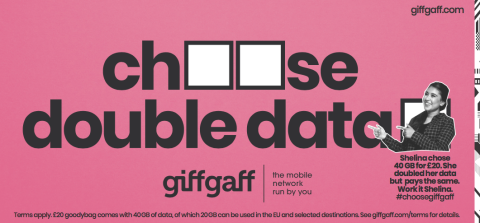

Bills bills bills. You hate it, I hate it, but that’s just how society works. Sometimes you think to yourself why you subscribed to a particular phone plan at the first place since you have to pay big monthly bills for all those unlimited calls, texts and mobile data that you barely even use. Fortunately, we got some good solutions for you.
Basically, all you really need is a phone carrier that offers affordable plans that are good enough for the phone user that barely uses the basic mobile features: calls, texts and mobile data. However, not every plan is good, not every phone carrier is consistent.
In this article, we’ll break down 3 types of phone plans that will ensure you won’t ever have to pay too much on something that you barely use.
- Prioritize Prepaid
Do you know what sucks? Paying a lot on a postpaid plan in which you never really optimize. Do you know what doesn’t suck? Cheap prepaid plans that contain just enough per month. Unless you want to chip off chunks of mobile data every month playing online games on your phone, lots of prepaid plans do just enough to keep you afloat every 30 days.
For example, Metro by T-Mobile, Tracfone, Simple, and Total Wireless have affordable basic plans that can go as low as $25 a month starting with a plan for the single user. And no, there are no lock-ups, contracts, hidden fees and excluded taxes (we’re looking at you, Verizon and AT&T).
What makes prepaid practically cheaper than postpaid is that its amount of data per month is very low. We’re talking about as low as 500 MB a month which includes calls, texts and surfing.
So, why get prepaid then? Because if you’re the type that barely texts other people or you prefer using wi-fi than mobile data, it’s all the more reason to get a plan that’s cheaper.
However, do take note that not all prepaid carriers are created equal. Take, for example, Metro by T-Mobile. Yes, it’s arguably the best prepaid service and it has the biggest coverage in terms of non-postpaid plans. Contrastingly, Simple does its job well but good luck finding good coverage for that, especially if you aren’t in the city.
2. Don’t Settle with the Big Four
By that, I mean Verizon, AT&T, T-Mobile and Sprint. You see, while they are America’s biggest phone carriers, they’re also America’s most expensive phone carriers too. Verizon alone is intimidating with its set of plans.
We’re talking as much as $75 up to $95 a month on just the phone bill. Yikes, right? Well, that’s because the big four carriers always offer their premium plans. As in the plans with the big bold words that scream out “U N L I M I T E D D A T A”.
These unlimited plans always carry tons of perks…which feel unnecessary and excessive. For example, AT&T’s Unlimited &More Premium includes unlimited calls, texts and surfing plus a 15GB hotspot, along with streaming perks like 1080p streaming and a subscription to HBO or STARZ. If that looks too much for you, then your observation is right. It really IS excessive unless you can accumulate all that within a month. Oh, and that’s $80 per month too.
“But don’t they have prepaid plans?”
Sure they do, but hear me out: just go with the likes of Metro or Total. Sure, Metro is owned by T-Mobile but that’s why the company made Metro – so you can save money. Odd isn’t it; T-Mobile makes Metro in order to offer prepaid plans for people who don’t like postpaid yet the former has prepaid plans too which, by the way, really sucks.
“But Verizon has a cheap $30 per month prepaid plan though. That’s enough for me.”
Hold on there, space cowboy. We haven’t addressed the elephant in the room yet: hidden fees. While T-Mobile and Sprint do not have these, Verizon and AT&T exclude taxes from their advertised prices. Oh, and let’s not forget about other charges too. Yeah, good luck on the bills, buddy.
So, why do people still subscribe to them? Simple: they have the best coverage in America and remain the most consistent phone carrier qualities in the country…except for customer service, of course, but that goes to any service-based business.
3. Try VOIP-Based Plans
Specifically, we’re talking about phone carriers that boast their free capabilities such as FreedomPop.
Voice Over Internet Protocol (VOIP)-based phone plans do exist, mind you. In other words, as long as you and another person are using the same phone carrier (again, like FreedomPop), you don’t have to pay a single cent at all when calling or texting.
Yes, it is very possible that you pay absolutely $0 every month…so as long as you don’t use the mobile data or call and text people with different services.
But even so, 200 MB worth of free calls, texts and mobile data will suffice for the solo user, given that they don’t use them much especially on video streaming and gaming.
Unfortunately, there’s a catch: VOIP-based plans aren’t exactly coverage-friendly. Yes, they are strong in the cities but when it comes to rural areas, it’s pretty much useless. Aside from that, you can’t use it when you’re traveling abroad.
And that’s why people still prefer using more popular phone carriers – simply because they just don’t want to have coverage issues, especially if they’re the travel type.
To Sum It All Up¦
Call it a life hack, avoiding the system, whatever. While they may look impractical because you’re too used to the common phone usage and billing, these are very useful ways to prevent yourself from spending a lot every month on bills alone. Just make sure you pick the right carrier just like the ones we mentioned. Not every service is good and that’s why you will need to research some more about these affordable phone carriers.





